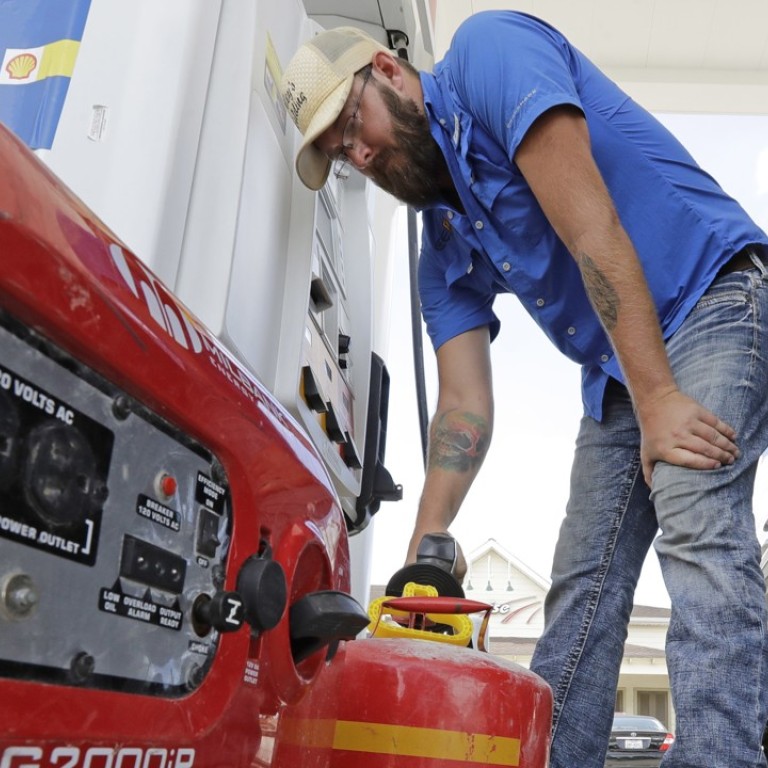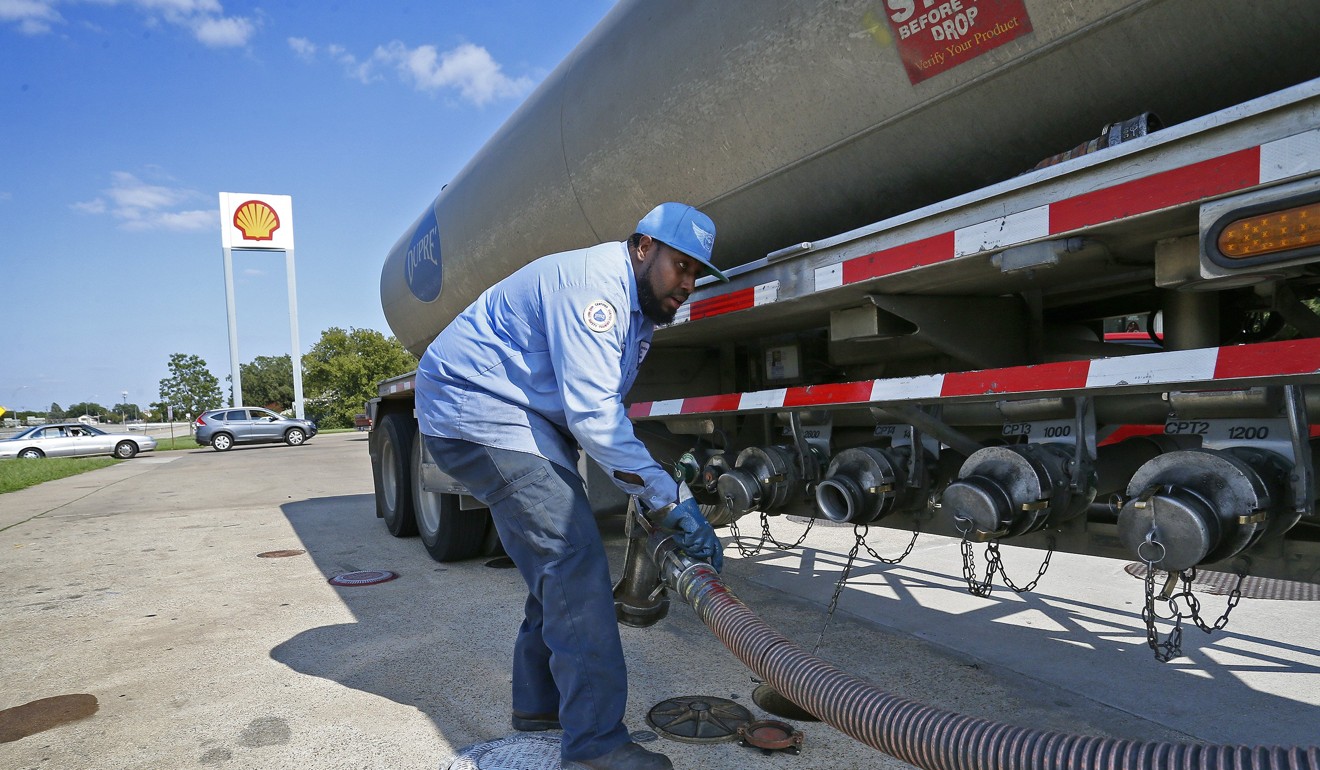
Oil at four-week high but petrol down as refiners shut by Hurricane Harvey reopen
Oil approached a four-week high, but petrol declined as refiners revved up plants pounded by Hurricane Harvey, sparking demand for crude.
Futures rose as much as 1.6 per cent in New York while petrol dropped, extending a three-day, 22 per cent decline. Motiva Enterprises LLC’s refinery 90 miles east of Houston, which processes more crude than any other North American plant, was on track to reach 40 per cent of its normal working rate within days. Tankers that had been stranded offshore began delivering crude to refiners that had been in danger of running dry last week.
The restart of Gulf refineries “implies that we are not going to get these great accumulations of inventory in oil as some had thought,” Bart Melek, head of global commodity strategy at TD Securities in Toronto, said by telephone.
Harvey knocked out more than 20 per cent of the nation’s refining capacity in just 48 hours, according to Sandy Fielden, Morningstar’s director of oil and products research. The storm also shut pipelines, ports and offshore platforms as it intensified before making landfall on August 25. Although many of those facilities are back in service, the recovery is incomplete due to extensive flooding in some areas that will probably require costly, time-consuming repairs.
“The refineries are coming back online,” Craig Bethune, a senior portfolio manager who focuses on natural resources investments at Manulife Asset Management Ltd in Toronto, said. But “the market still views pricing as rangebound.”

Meanwhile, Pioneer Natural Resources Co. Chief Executive Officer Tim Dove expects oil prices to remain rangebound through 2018, according to remarks he made at a New York energy conference on Wednesday.
West Texas Intermediate crude for October delivery climbed 50 cents to US$49.16 a barrel on the New York Mercantile Exchange. WTI is heading toward its 200-day moving average at about US$49.50 a barrel.
Brent for November settlement added 62 cents to US$54 a barrel on the London-based ICE Futures Europe exchange, after earlier rising to the highest since the last OPEC ministerial meeting on May 25. The global benchmark traded at a premium of US$4.38 to the November WTI contract.
October gasoline futures in New York dropped 2.2 per cent to US$1.6622 a gallon.
US crude stockpiles likely rose by 4 million barrels last week, while gasoline inventories shrank by 5.2 million barrels for the biggest decline since March, according to a Bloomberg survey before government data to be released on Thursday, a day later than usual because the Labour Day holiday was on Monday.
Hurricane Irma was headed toward Puerto Rico on a path that may bring it ashore in Florida this weekend. The latest models showed it veering away from oil platforms in the central and western Gulf of Mexico and sparing Houston from more devastation. NuStar Energy LP shut its St Eustatius oil terminal on Monday.
“If it goes through Florida, that’s definitely a headwind for demand” for gasoline and other fuels, Bethune said.
UBS Group AG trimmed its Brent and WTI price forecasts, citing expectations that the global crude glut will not abate until the middle of 2018, according to a report. Libyan authorities reopened a valve that had been closed on the pipeline linking the Sharara oilfield, the nation’s largest, and its Zawiya refinery, according to a person familiar with matter.

